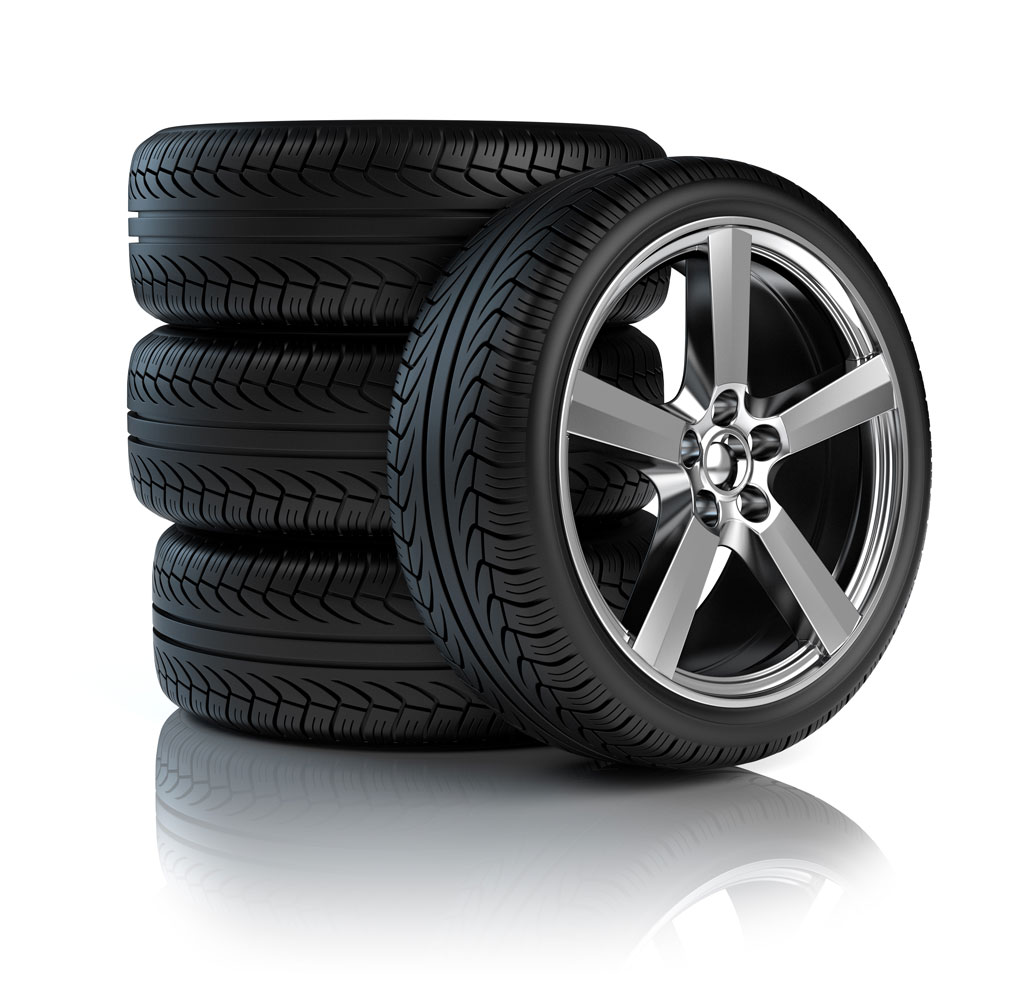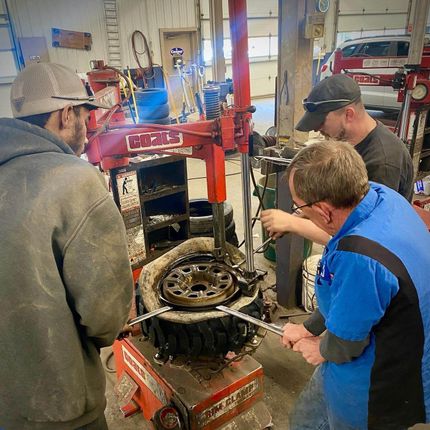Boost Your Adventure: Trust Morris Tires for GMC Tires Service
Boost Your Adventure: Trust Morris Tires for GMC Tires Service
Blog Article
Tire Service: The Impact of Weather Condition Conditions
When it comes to guaranteeing optimum performance and safety and security on the road, recognizing the effect of climate problems on tire service is essential. GMC Tire Service. In this conversation, we will certainly explore the complex connection in between climate conditions and tire service, dropping light on the relevance of weather-specific tire upkeep techniques and factors to consider.
Warmth and Tire Efficiency
When subjected to high temperature levels, tires experience changes in performance that can significantly affect vehicle safety and handling. The heat produced from long term driving or heat problems causes the tire rubber to soften, bring about decreased step life and increased wear. As the rubber ends up being softer, the tire's hold when driving decreases, impacting braking ranges and overall traction. In extreme situations, extreme heat can even create tire blowouts, posing a serious security risk to the automobile and its passengers.

Cold Weather Condition Effects
Winter problems can have a significant influence on tire performance and safety and security. As temperatures decline, tire rubber can harden, causing decreased grip on icy or snow-covered roadways. In cold weather condition, tires might also lose air stress a lot more rapidly, which can impact handling and gas effectiveness. Additionally, chilly temperature levels can create tire sidewalls to tense, increasing the risk of damages from craters or other road risks.
To mitigate the effects of winter on tires, it is crucial to on a regular basis check tire stress and inflate them to the supplier's advised degrees. Using winter season or all-season tires created for cool weather conditions can also improve grip and hold on icy or snowy roads. Appropriate tire upkeep, including routine assessments for wear and damage, comes to be much more essential throughout chillier months to make certain optimal performance and safety.
Rainy Conditions Impact
During rainy conditions, tire performance and security can be significantly affected by the wet roadway surfaces and decreased visibility. The walk pattern of tires plays a vital function in preserving traction on wet roadways. Tires with worn-out footsteps are a lot more prone to hydroplaning, where a layer click here to find out more of water develops between the roadway and the tire surface, resulting in loss of traction. To combat this, chauffeurs must consistently inspect their tires for adequate tread deepness and think about investing in tires especially made for wet conditions.
Furthermore, stormy climate can likewise lower exposure, making it testing for vehicle drivers to see the road ahead clearly (GMC Tire Service). In such problems, it is important to readjust driving speeds appropriately and maintain a secure complying with range to enable sudden stops. Properly inflated tires can additionally help in preserving control on wet roadways by supplying better handling and grasp
Snow and Tire Security
Snow-covered roads present special challenges for drivers, emphasizing the significance of proper tire choice and maintenance. When driving in snowy conditions, having the appropriate tires can make a considerable difference in safety and efficiency. Winter tires are made with special rubber compounds and tread patterns to supply far better traction on snow and ice compared to all-season tires. The much deeper treads and sipes of winter tires assist hold the road much better, minimizing the risk of slipping and moving.
Moreover, drivers should consider setting up tire chains in extreme snowy conditions. Tire chains supply additional grip by gripping the snow and ice, enhancing stability and control. Nevertheless, it is very important to adhere to supplier guidelines when making use of and setting up tire chains to stop damages to the tires and automobile. By picking the appropriate tires, preserving correct inflation, and taking into consideration added traction help like tire chains, motorists can enhance their safety when browsing snow-covered roadways.
Weather-Related Tire Maintenance
Weather-related tire maintenance encompasses an array of methods aimed at ensuring optimum tire function and longevity in different climate circumstances. One essential facet of weather-related tire upkeep is tire pressure policy. Examining tire step consistently and replacing tires when tread wear reaches a particular deepness is crucial for maintaining traction and security in unfavorable weather.
Verdict
In conclusion, climate problems have a significant impact on tire performance and safety and security. From warmth impacting tire pressure and wear to chilly weather condition minimizing traction, it is essential to consider the climate when keeping and using tires.
In this discussion, we will check out the detailed partnership between weather conditions and tire service, shedding light on the significance of weather-specific tire upkeep techniques and considerations.

Report this page